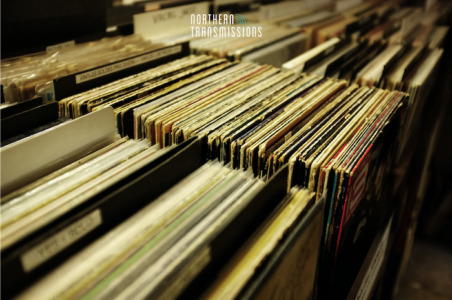
8.3
Blackstar
David Bowie
When David Bowie returned in 2013 following a long absence with The Next Day, the album was overtly intended as a throwback to his ‘70s halcyon days. Not only was lead single “Where Are We Now?” riddled with geographical references to Berlin, but album cover was a cheeky nod to the artwork of “Heroes” — one of the albums from the singer’s celebrated late‘70s Berlin Trilogy. Rather than evoking the ambiencefilled fearlessness of his original Berlin output, however, The Next Day was a fairly by thenumbers rock album; while fans were grateful for his first LP in a decade, it paled in comparison to Bowie’s stronger rockoriented material (like Scary Monsters or Ziggy Stardust).
Blackstar, on the other hand, is a step into a bold new direction. Although it doesn’t sound much like the classic Berlin Trilogy, it returns Bowie to the anythingmighthappen spirit of that classic work. He puts his weirdest foot forward by placing title cut “Blackstar” as the opening track. It’s a 10minute opus that seamlessly shifts between slinkily syncopated artfunk, avant jazz, lush soul and Easterninflected orchestrations, all tied together with peculiar harmonized melodies. The results sound a bit like what fans in the ‘70s might have optimistically imagined Bowie would sound like in the 21st century.
The tracks are long enough that there are just seven cuts in total, and while the rest of the album isn’t quite outthere as “Blackstar,” Bowie and his backing players manage to establish a cohesive sound without limiting themselves to any one genre. The overarching influence here is jazz: this is particularly apparent in the skronking horns of the freaky cabaret experiment “’Tis a Pity She Was a Whore,” the smooth sax and piano interplay of “Dollar Days,” and the tightly wound drum syncopations of the ominously tense “Sue (Or in a Season of Crime).” The adventurous soundscapes also incorporate icy postpunk guitars akin to the xx on “Lazarus,” a boomthwacking funk swagger on “Girl Loves Me,” and a shimmying drum machine on final track “I Can’t Give Everything Away.” This closing cut makes a clear allusion to one of Bowie’s past highlights, “A New Career in a New Town” from 1977’s beloved Low, with its lonesome harmonica wails; the climactic guitar solo recalls the fretboard heroics of the Scary Monsters standout “Teenage Wildlife.”
It goes without saying that Blackstar isn’t the kind of epochdefining masterpiece that Bowie built his career upon a few years ago. That being said, it does return the songwriter to the unpredictable excitement of that earlier time — here, he’s working outside of any established scene, creating music that begs to be given its own invented genre tag (celestial artjazz? beatnik roboglam?). For a 69yearold who everyone assumed was decades past his prime, it’s a triumph.
Review by Alex Hudson
Latest Reviews
Tracks
Related Albums
Related News
Advertisement
Looking for something new to listen to?
Sign up to our all-new newsletter for top-notch reviews, news, videos and playlists.










